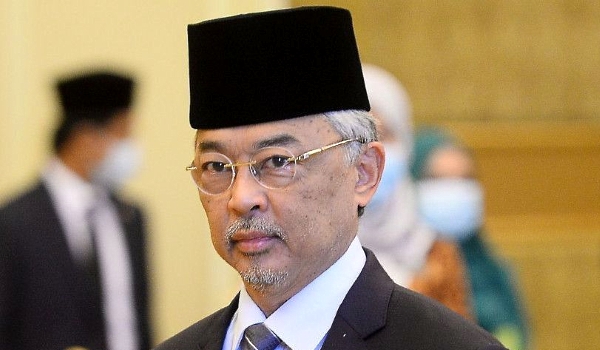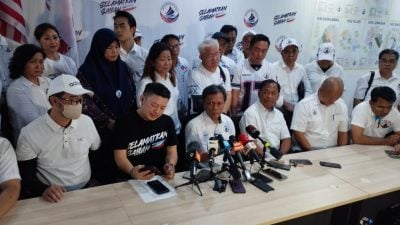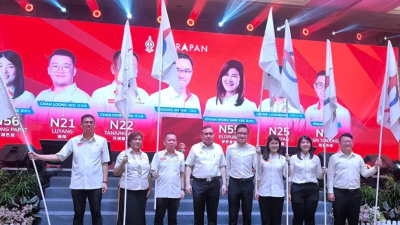
By K. K. Tan
Our King is more than just a figurehead as many politicians and some media players would like us all to believe.
Our system of constitutional monarchy has given our King certain clearly defined powers, which only he and he alone can perform.
Such powers cannot even be challenged in a court of law.
One of these powers is on the appointment of prime minister in a situation when the incumbent prime minister has already resigned.
The King shall at his sole discretion appoint a Member of Parliament to be the next PM, whom he believes is able to command a simple majority (of at least 111) of all existing MPs (220).
The King is not obliged to state his reasons for doing so or to engage in polemics with anyone.
It will be up to the next parliamentary session to confirm or reject the appointment of the new PM, but it should be on a date to be determined after the PM has the time to evaluate and appoint his cabinet ministers in order to demonstrate to the MPs the quality and integrity of such people.
However, in the current scenario and the political, social, economic and public health mess that the country is in, irresponsible and disloyal (to the King) MPs had better think very hard if they were to oppose the decision by the King on the appointment of the next PM.
If the King deems it necessary, he has the residual powers on the advice of the incumbent PM even before a parliamentary vote of confidence, to dissolve the Parliament.
At the same time, he can also declare another state of emergency and even rule by martial law if there is a credible threat to our national security.
He can then decide on a suitable date for the next general election. And no MPs or any powers on earth can challenge the King in a court of law on this matter.
Again, as I have done so in my previous press articles, it is worth clarifying in the current confusion by many people that our parliamentary democracy is not based on political parties choosing the PM.
An MP, even though he or she is not a member of any political party, can be a PM as long as the King is convinced that he or she is able to command a majority support of MPs.
There is no mention of the involvement of any parties in the Constitution or if an MP must be a member of any party before he or she qualifies to be a candidate for PM.
No one but only the King (and his brother Rulers) would know the actual situation about who have voted for whom to be the next PM.
The King has decreed that it should be done on a private and confidential basis by each and every MP to send their respective statutory declarations to the King and no nobody else.
An MP is answerable to his or her constituency first and must also be loyal to the King, then only his or her political party (if any).
The King and Deputy King have already met the political party officials yesterday to convey certain messages to them.
Any party officials can say whatever they like. It is only their "expectations" and pure speculation on whom their party MPs have voted for to be the next PM.
It is fine to speculate and guesstimate but please be upfront about it and not state as though it is a matter of fact.
Some media writers have also fallen into this trap of stating a matter of fact when it is pure speculation at the moment.
The Sarawak GPS (with 18 MPs) has done the right thing to say that they are abstaining and leaving it to the King to decide for them on who should be the next PM.
They must be aware and sensitive with the unhappiness by the King and his brother Rulers over certain missteps undertaken by former PN government leaders which were clearly inappropriate and even unconstitutional.
Some media and bloggers have gone overboard to state as a matter of fact on how MPs have voted so far in their submission of their SDs to the King, rather than just saying "so and so from party X has claimed that all MPs of his party have voted for Mr X".
Misinforming readers on the actual situation on how the MPs have voted (which only the King would know), can be seen as an insult and an act of insolence to the institution of the King.
(K. K. Tan is a corporate, political and geopolitical analyst for more than 35 years.)
ADVERTISEMENT
ADVERTISEMENT


































